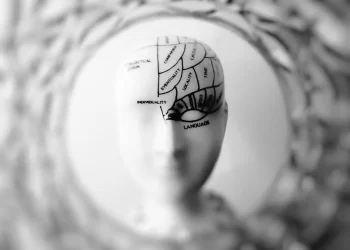Identity is astoundingly complicated, which is not always readily discernible, and has been known to foster conflicts; but in recent times, its midwifery of dissonance has scaled new heights and broken new grounds, necessitating a closer look at and a critical analysis of the idea of exclusive identity that forms the heart of most of the identity-driven conflicts. But before we get on with it, let me place on record my surprise at the need to even say it aloud that a human being is part of many more than a single class or group because for one to have to reiterate it, the world must be a bafflingly strange place. Or maybe the propagandist cacophony has temporarily crowded out such simple, unimpeachable but politically barren (or positively inconvenient) truths, requiring a periodical reminder of their existence and unassailability.
One is born into much of what goes into one’s identity — gender, race, religion, language, food and so on — and yet it isn’t destiny. One is always free to think for oneself, and opt out of much, if not all, of what one is born into. But even if one doesn’t, one’s identity is not a fully formed, indivisible whole; it’s formed by cultural layers, which stack up and intermingle to make a personality. The same cultural influences shape different people similarly as well as differently, but the multiplicity of identities within a human being continues to inform how he or she thinks, feels and responds to different things in the world, making a person a unique individual who fits into multiple groups, classes and brackets. The fusion of multiple cultural elements in a human being does not obliterate the different identities that continue to live in a person. At different points in life, different identities tend to dominate one’s life for different durations of time and for different reasons.
A Hindi-speaking, Hindu from Madhya Pradesh in Delhi is part of the majority in most respects, but will quickly find himself a part of the oppressed minority, if the sentiment against inter-state migrants flares up, like it keeps happening in Maharashtra every now and then. A Muslim in Delhi is in a different kind of minority whereas a Muslim migrant is part of two separate minority groups. An upper-caste Hindu from Delhi living in Delhi might look at himself or herself as part of the majority, but he or she belongs to a caste minority. A Tamil-speaking migrant in Delhi is a linguistic minority in addition to being part of the minority group of migrants. In some cases, the migrants might outnumber the natives, in which cases the natives are a minority in such regions.
Basically, almost everybody is a minority of one kind or the other depending upon where you draw the line. And that’s because we are many people rolled into one person. Individual identities are, for the most part, determined by self-identification, which is influenced, in large parts, by others’ perception and treatment of an individual.
When the treatment of an individual, or a group, or a class of people is oppressive on account of the general perception of the person, group, or class in question, the oppressors’ identification becomes the defining identity of the oppressed because the struggle against oppression eventually comes to center around such identity, and gets repeatedly reinforced by both the sides. That’s how an otherwise inconsequential aspect of one’s life becomes a large part of one’s lived reality. That’s the unconscionable social mechanism by which the mere accident of birth makes one person twice-born, god-like, learned, and worthy of universal veneration, and makes another impure and untouchable. Becoming a Hindu or a Muslim or a Christian is much the same, and while one can convert to another religion, few choose to, having socially and emotionally invested in one’s religion of birth.
Identity is not a hard fact in the world; it’s a malleable socio-political (or socio-politico-cultural) construct defined by mental borders rather than a real, tangible boundary. It can, therefore, be created and reinforced, and can just as well be diluted and dissolved by a change of perspective. It would just take an unhealthy dose of beverage fanaticism for coffee-drinkers and tea-drinkers to run amok and kill each other in the streets over coffee and tea exactly the same way as religion fanatics and the bloodthirsty mobs they instigate do over religion.
It is solely to administer substantive social and economic justice that people can be justifiably divided into identity groups for differential treatment, and only when and only if such differential treatment is both effective and necessary for the purpose as long as the substantive justice sought to be so administered does not cause injustice or excessive hardship to any other group of people, larger or smaller than the potential beneficiary group, notwithstanding, of course, the minor inconveniences and social anxieties that accompany all changes to the status quo.
Save for the limited purpose briefly outlined above, dividing people into identity groups does not lead to anything worthwhile, and is rarely used for any purposes other than introducing and mining societal polarization for political benefits, which can do little more than poison the roots of a democratic polity. Identification can both unite and divide, but where it does not serve a constructive public welfare purpose, the dangerous beast is best left unprovoked. In a diverse post-independence India, it’s a toxic substance that can be medicinal only on very rare occasions, if ever, and only in very small doses, if at all.
Originally published as part of my monthly column Street Lawyer in the May-July 2021 Issue of Lawyers Update (Vol XXVII, Part 5-7).






